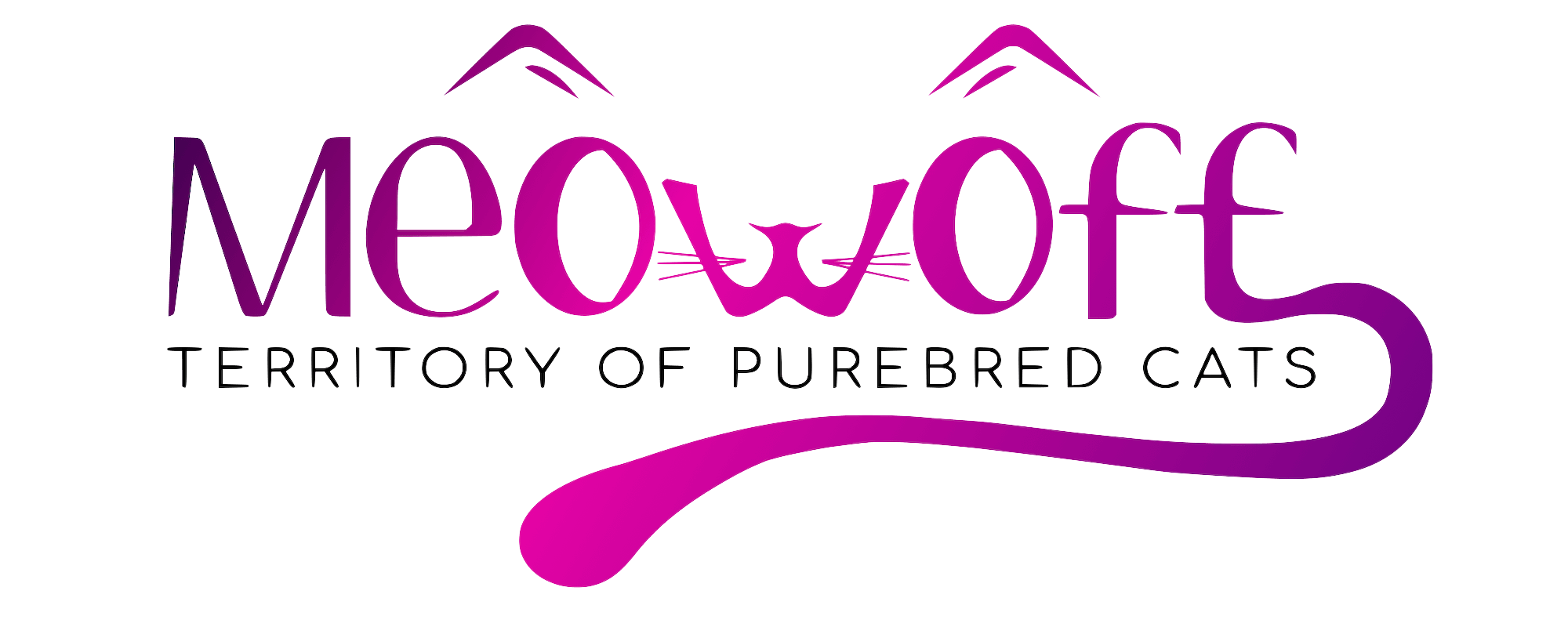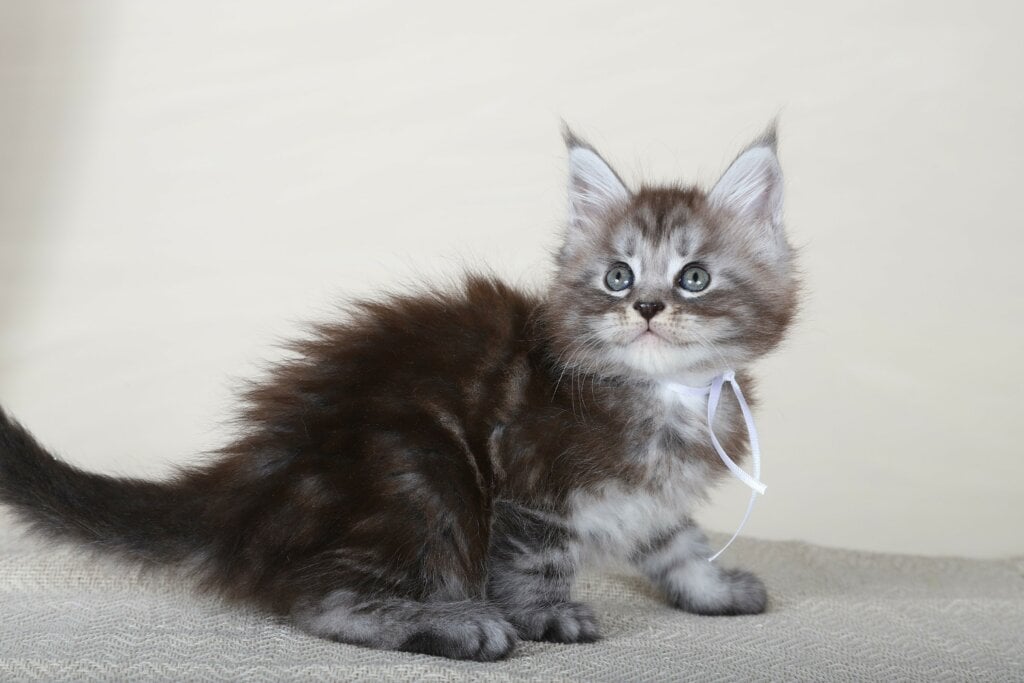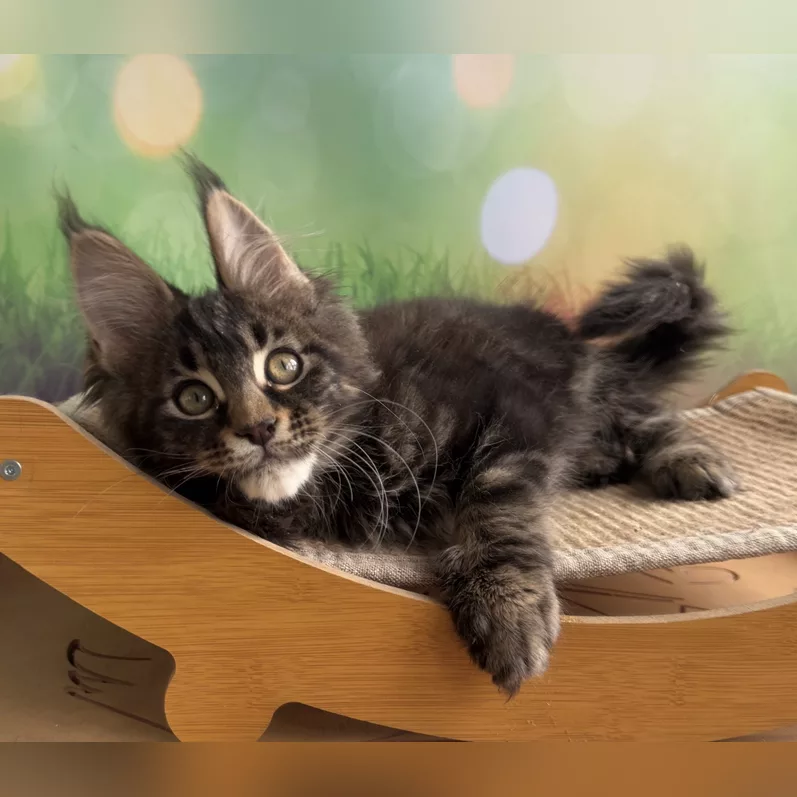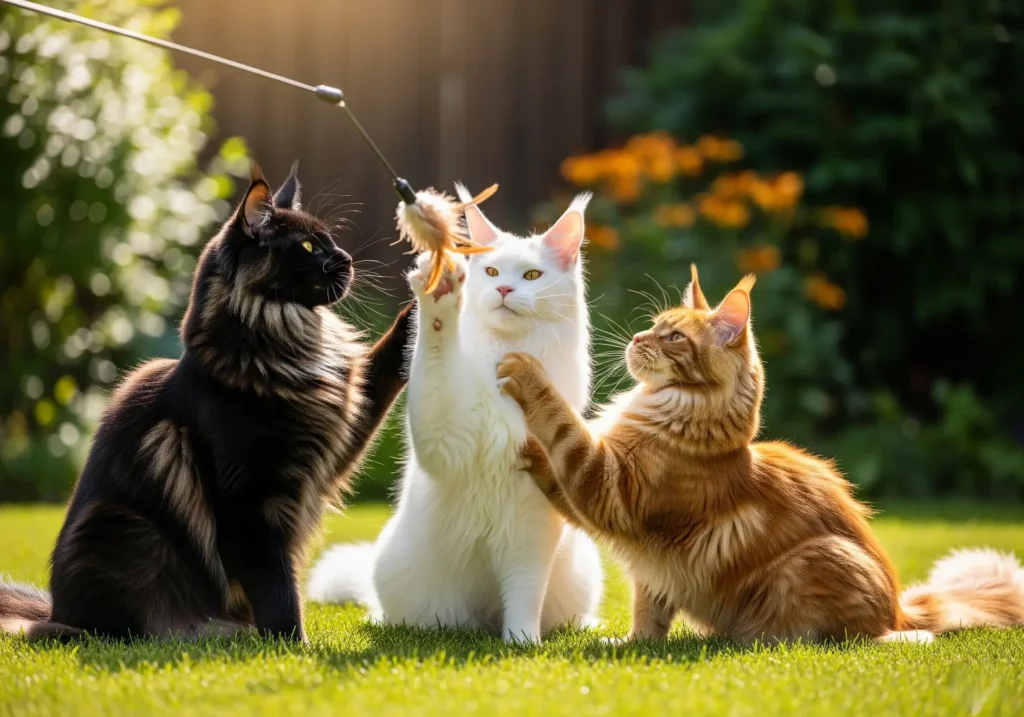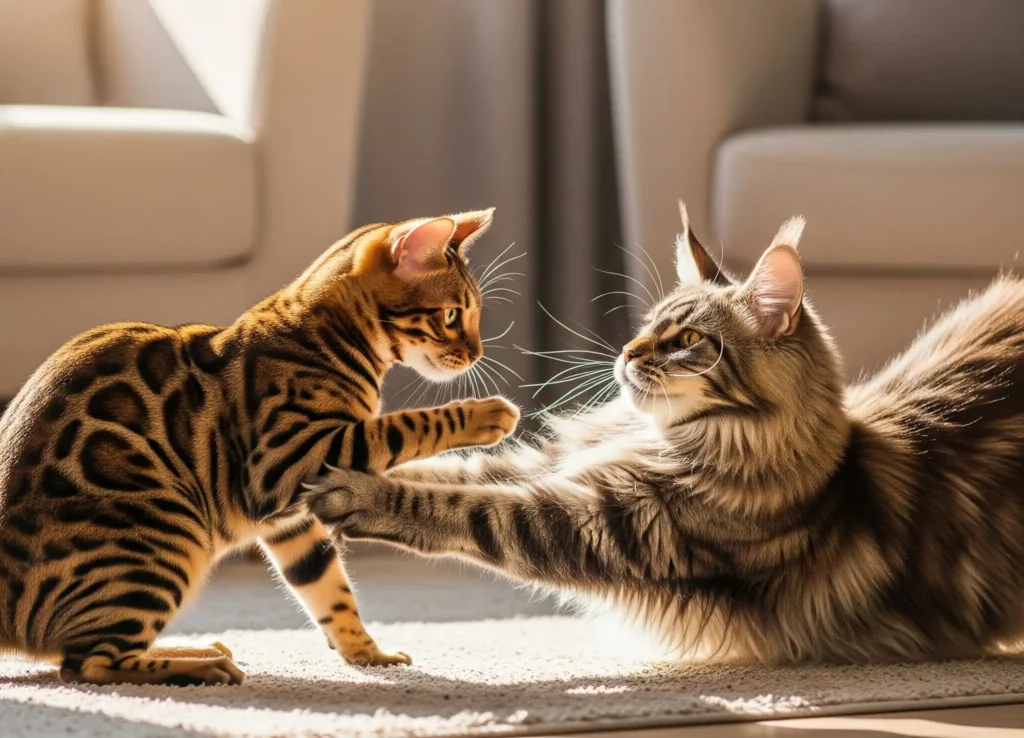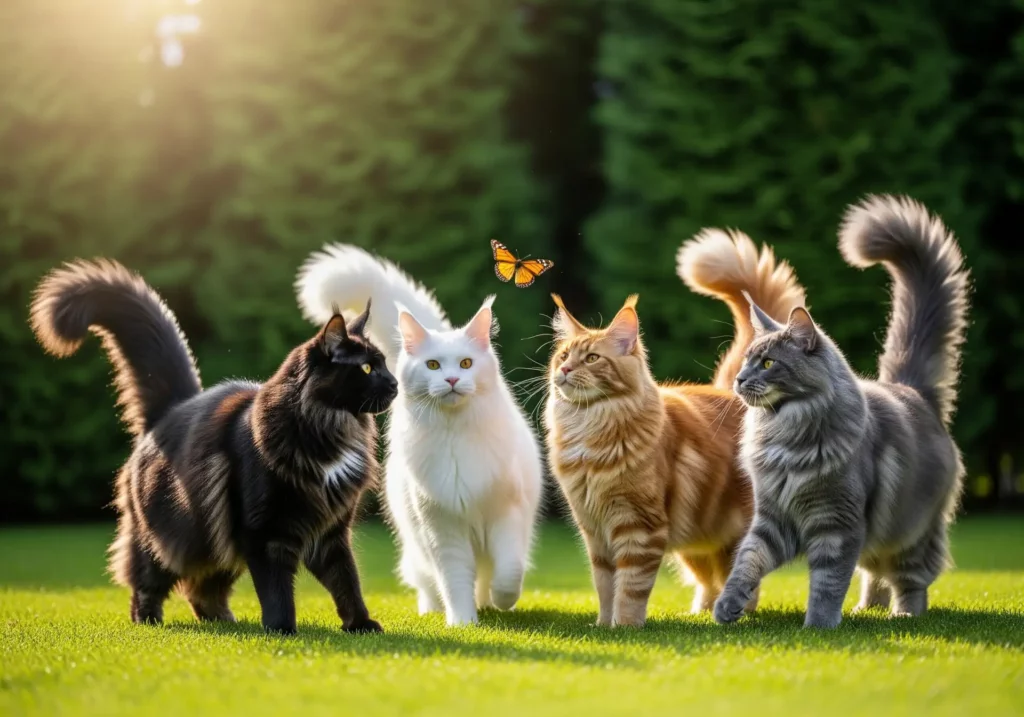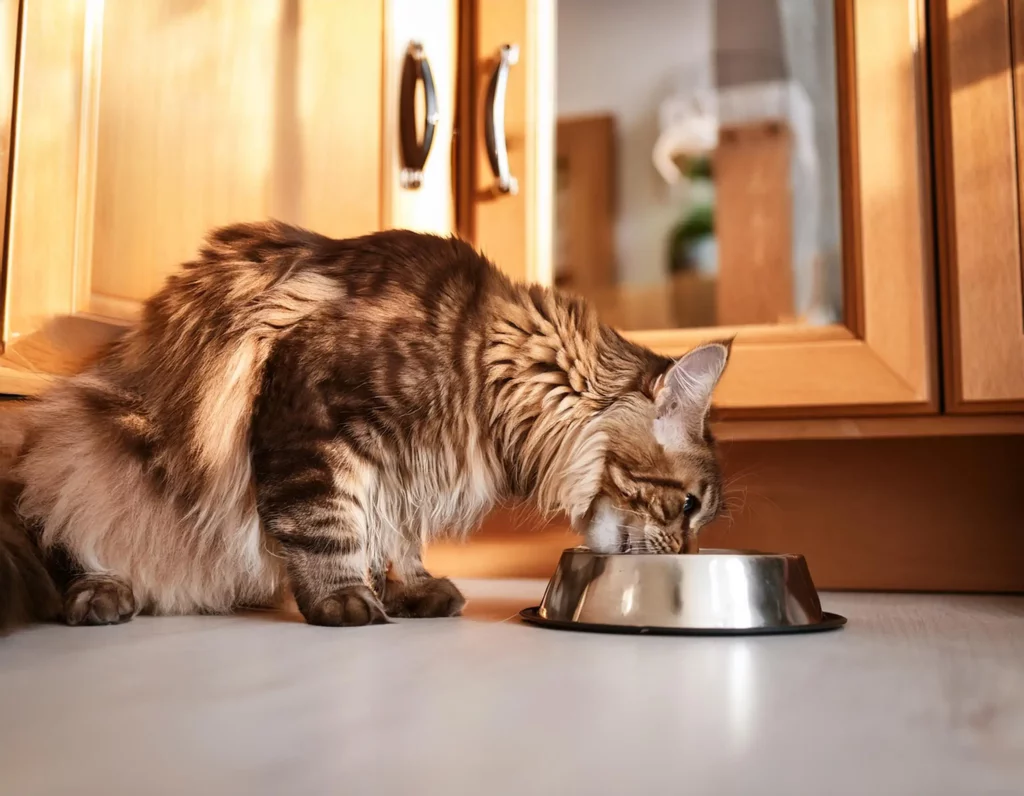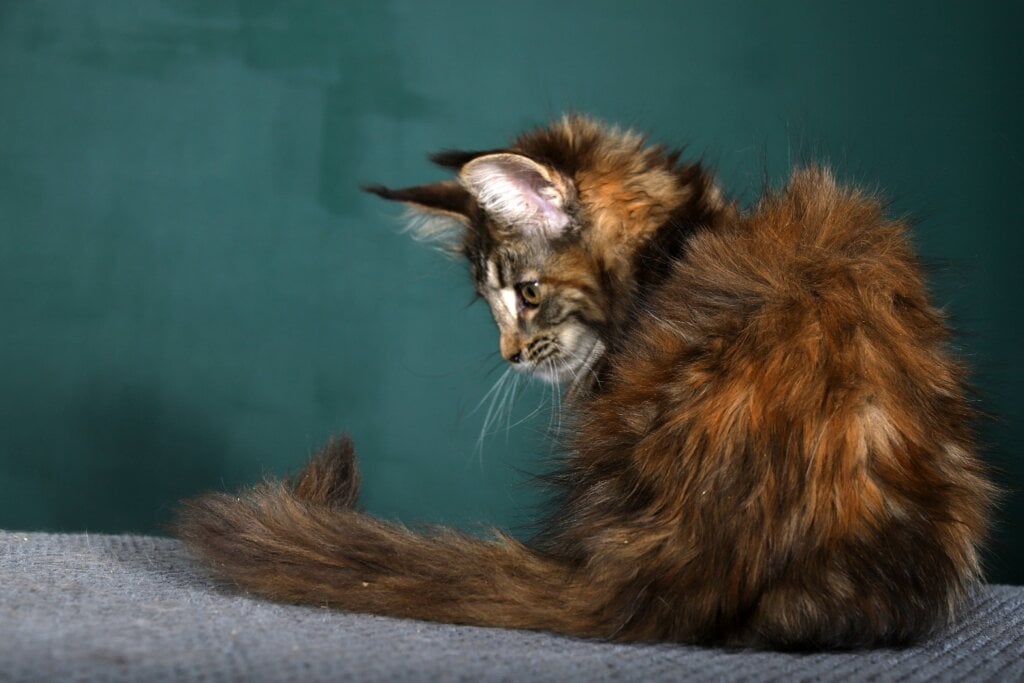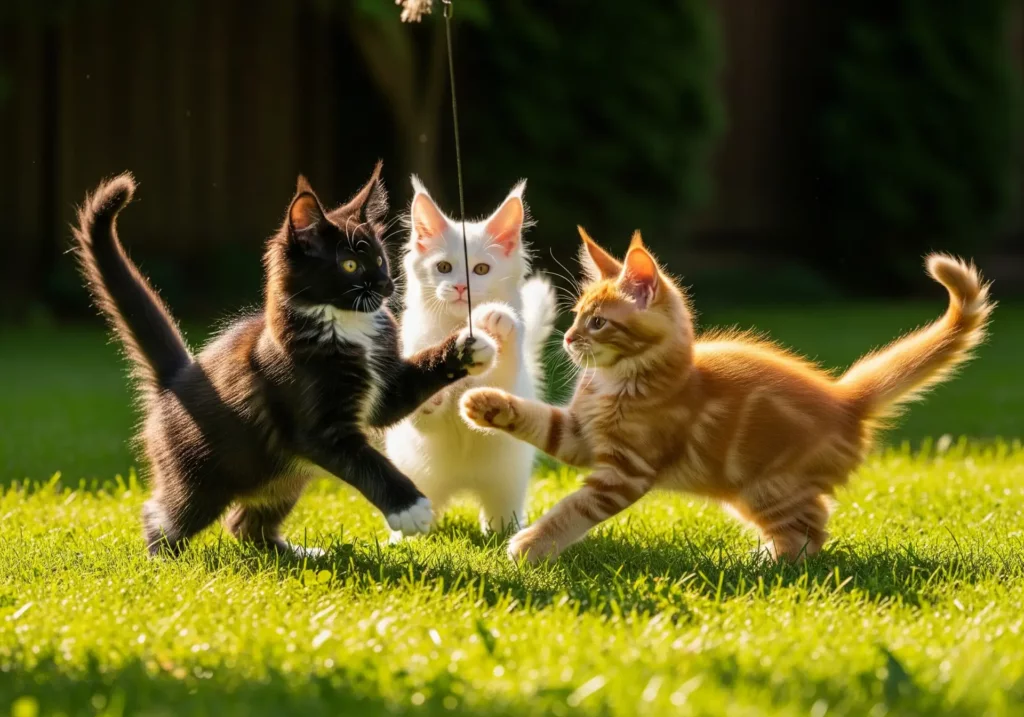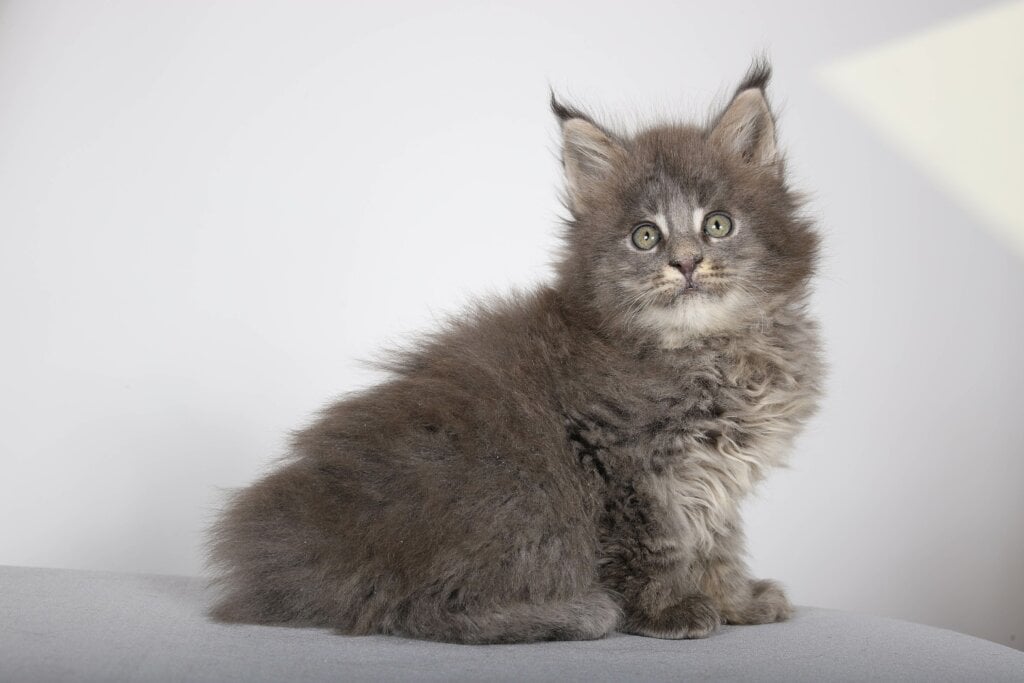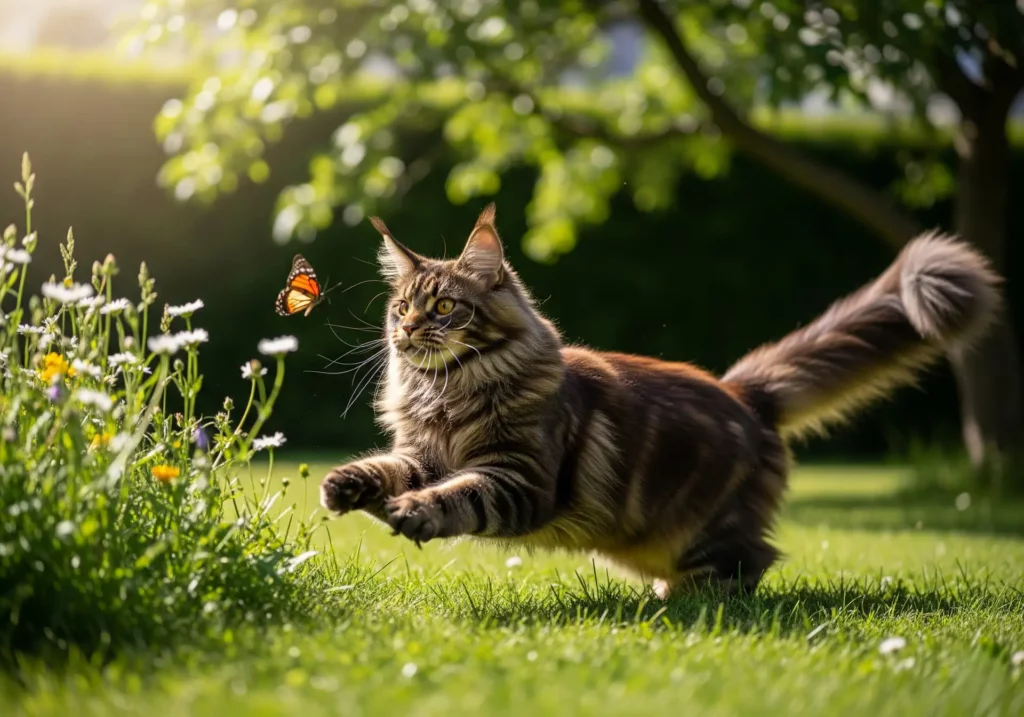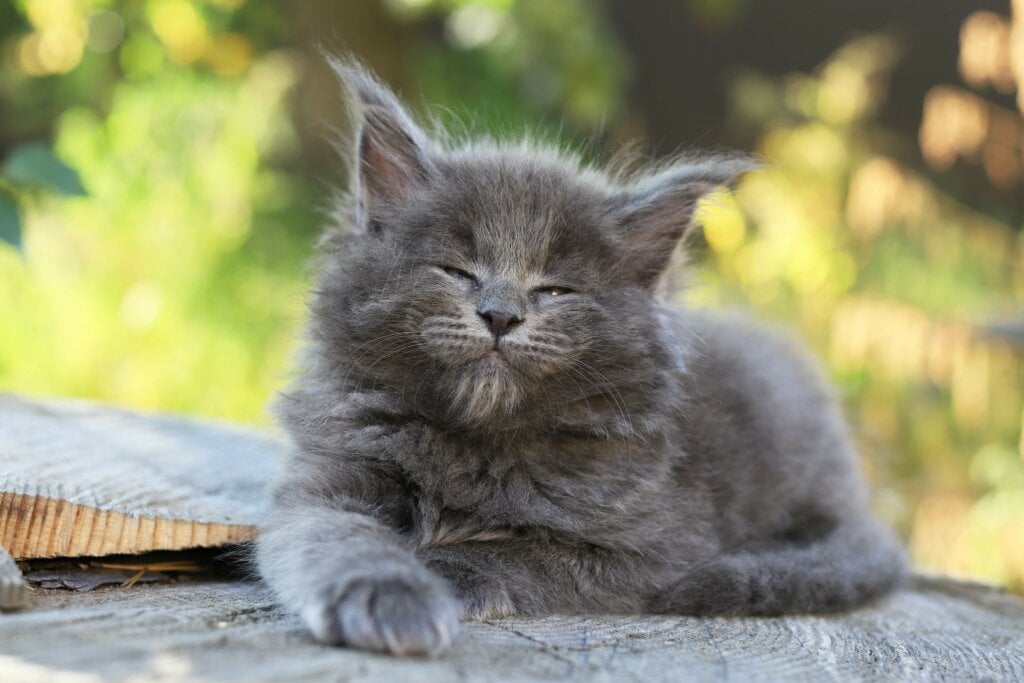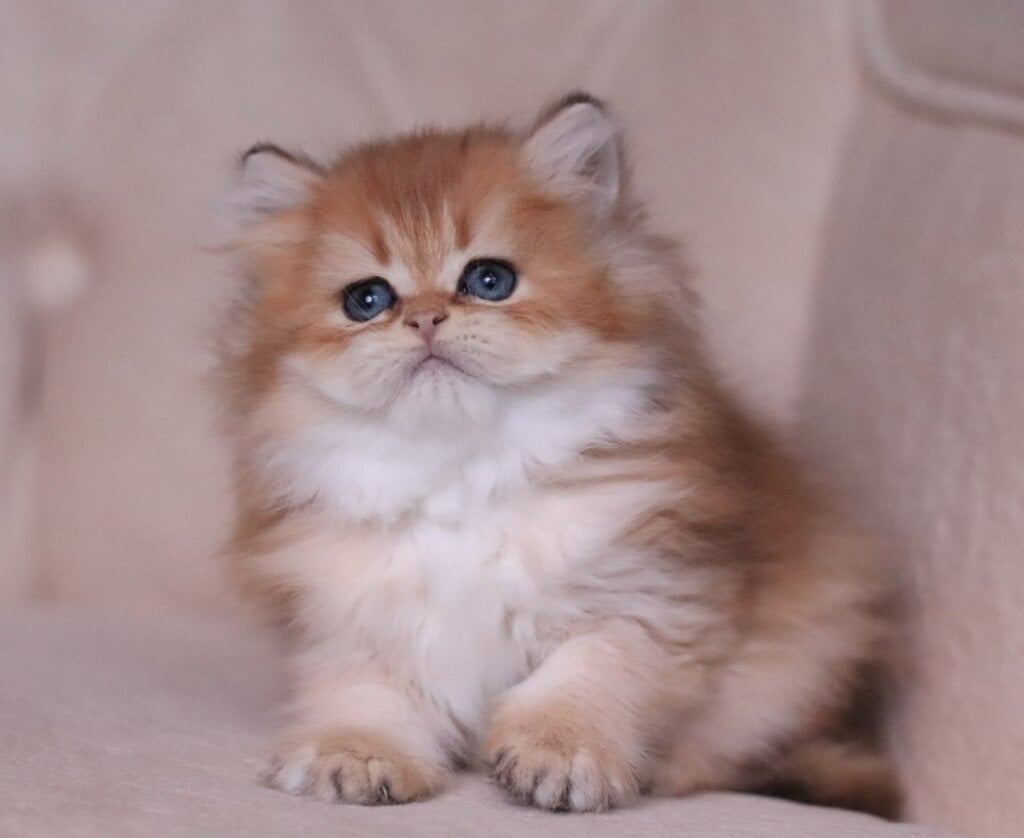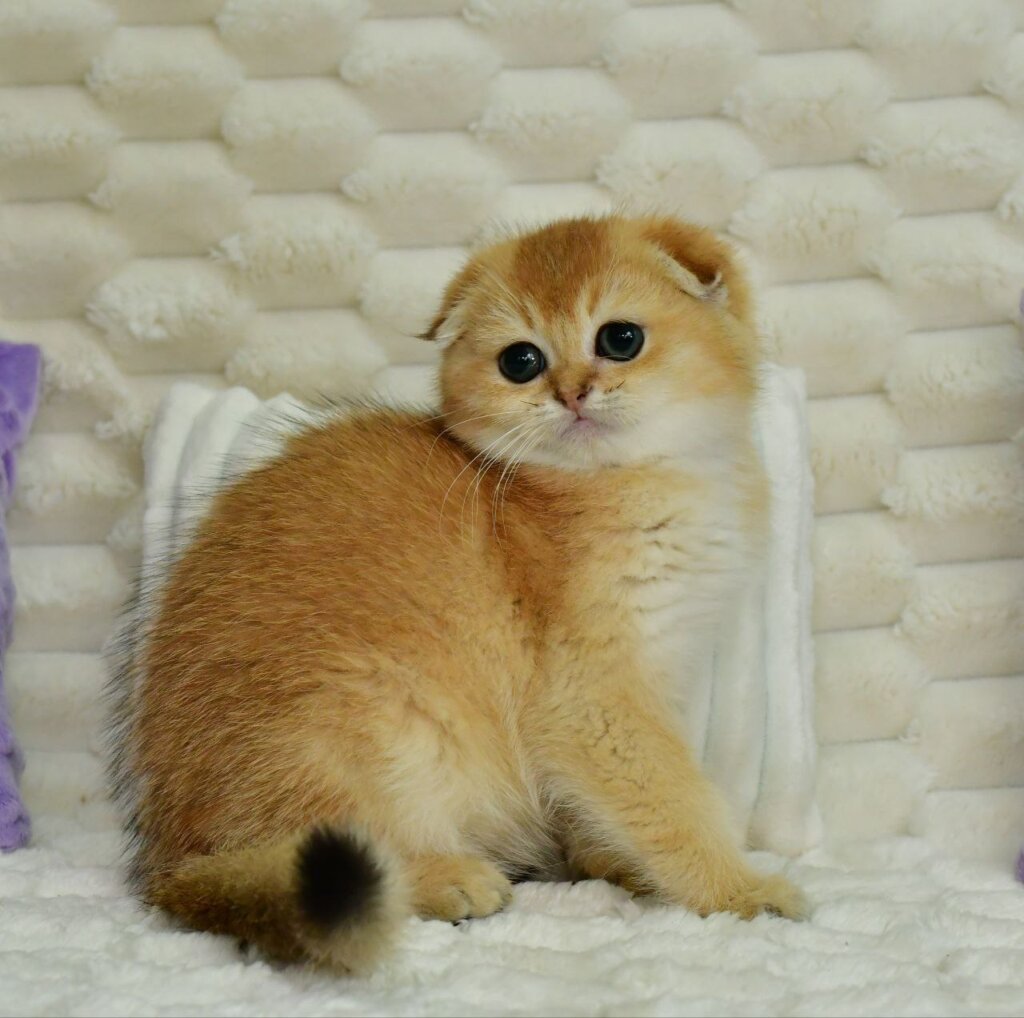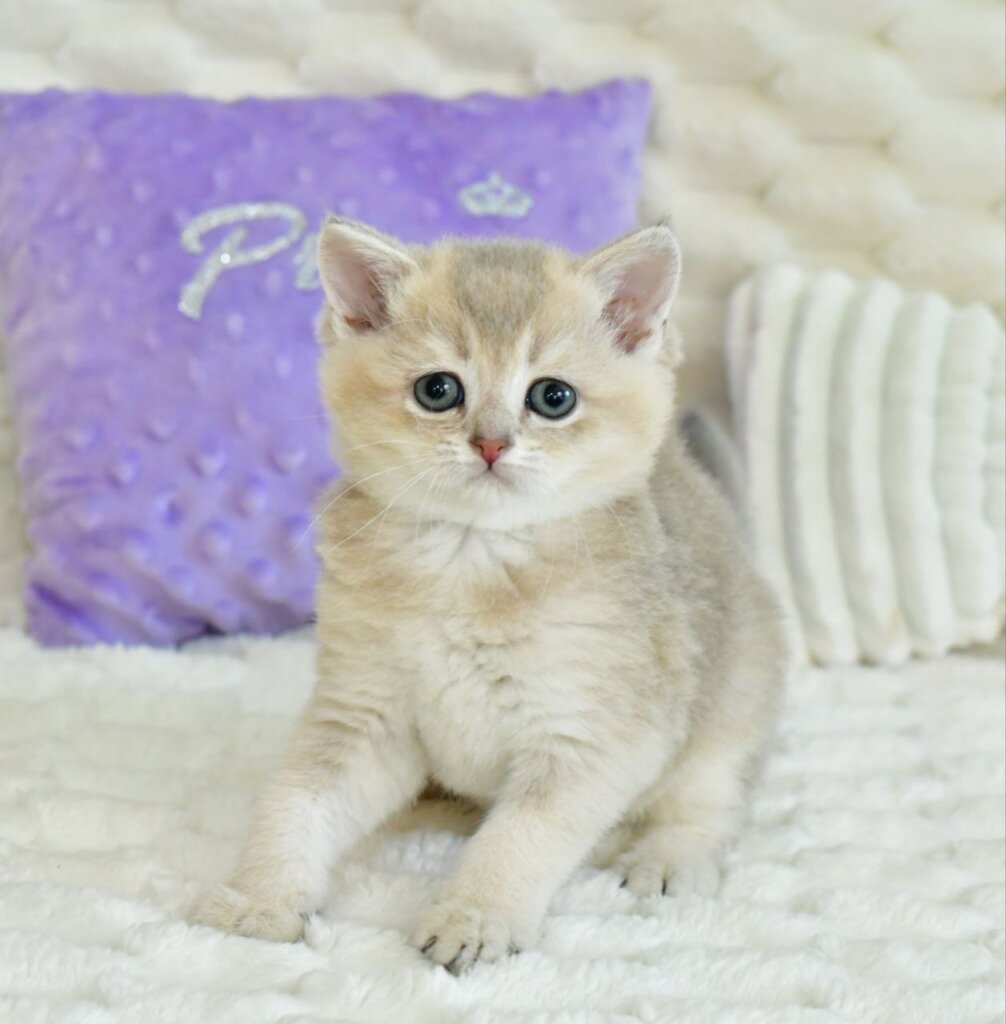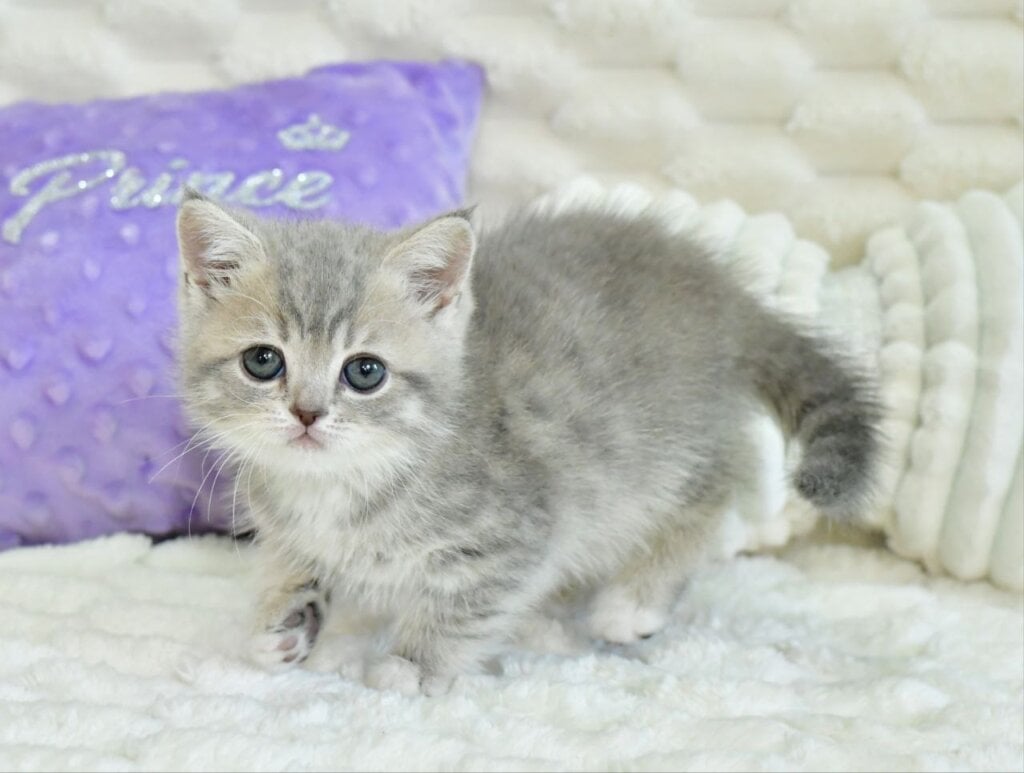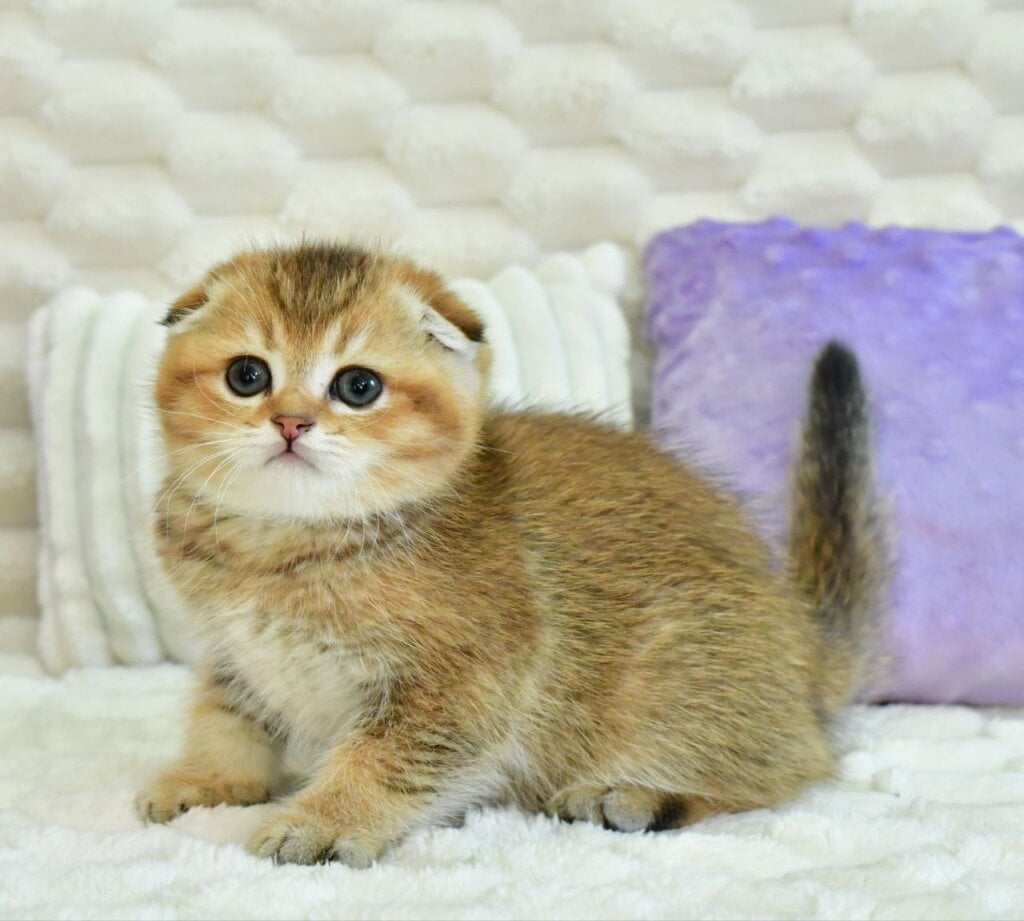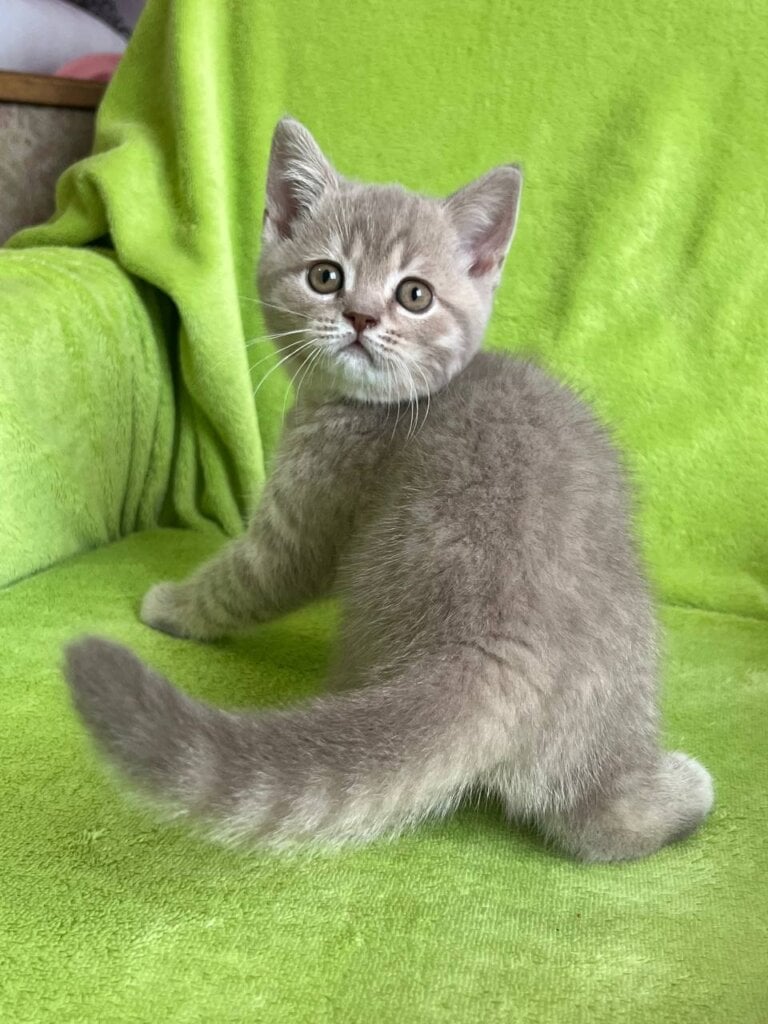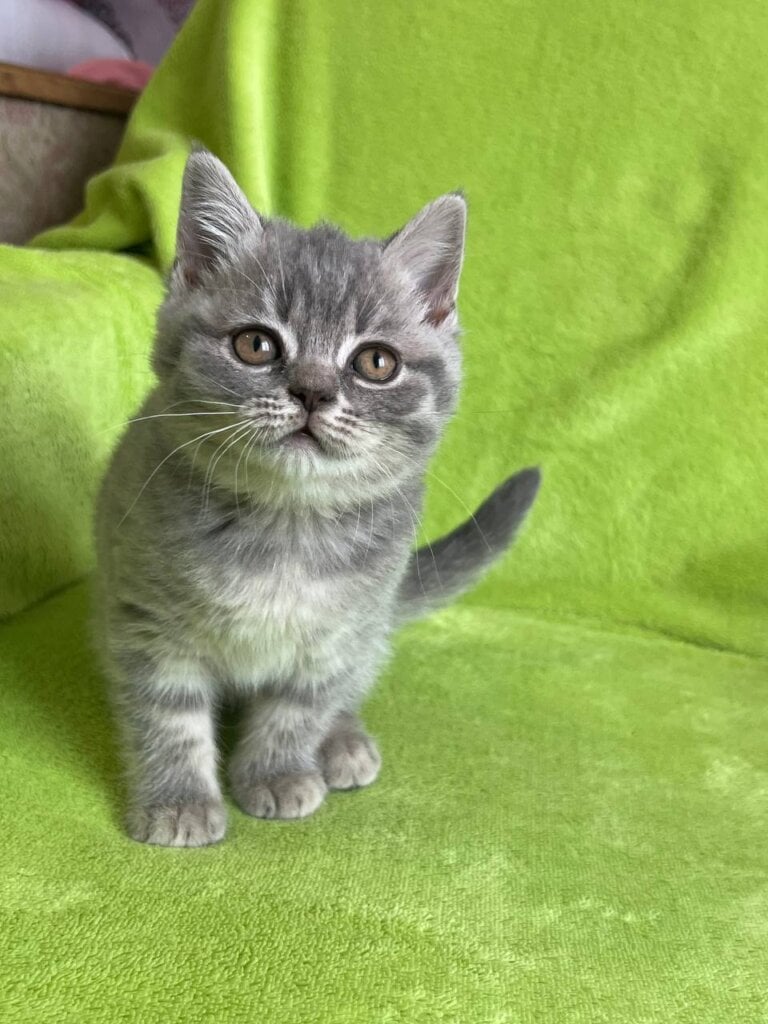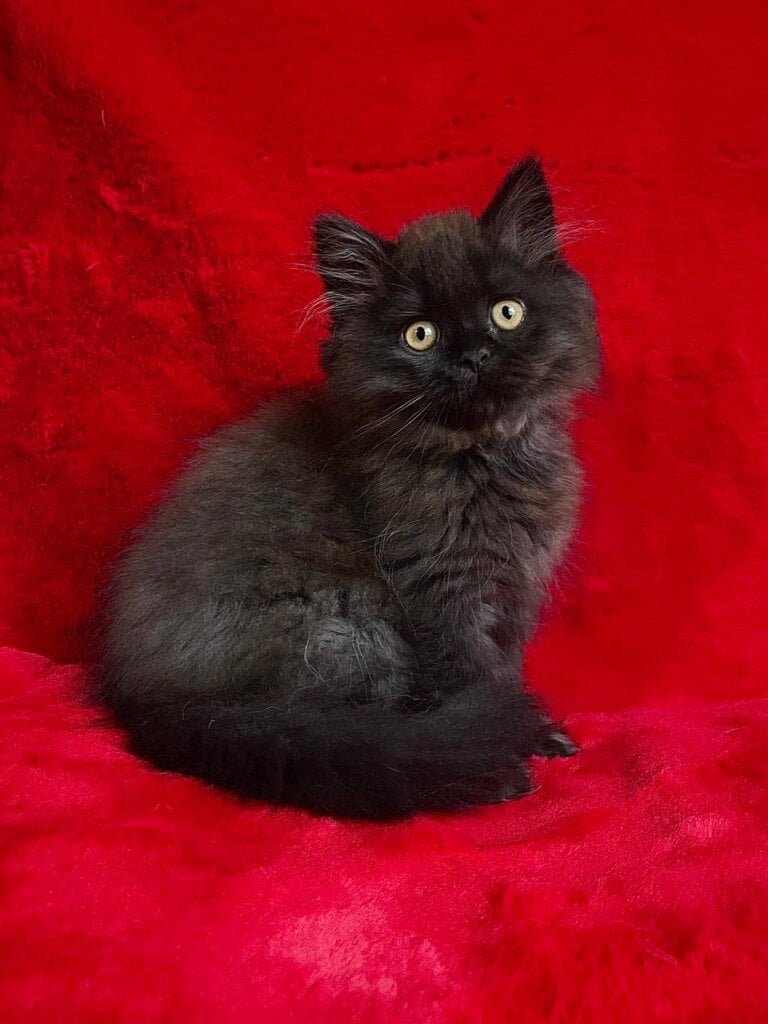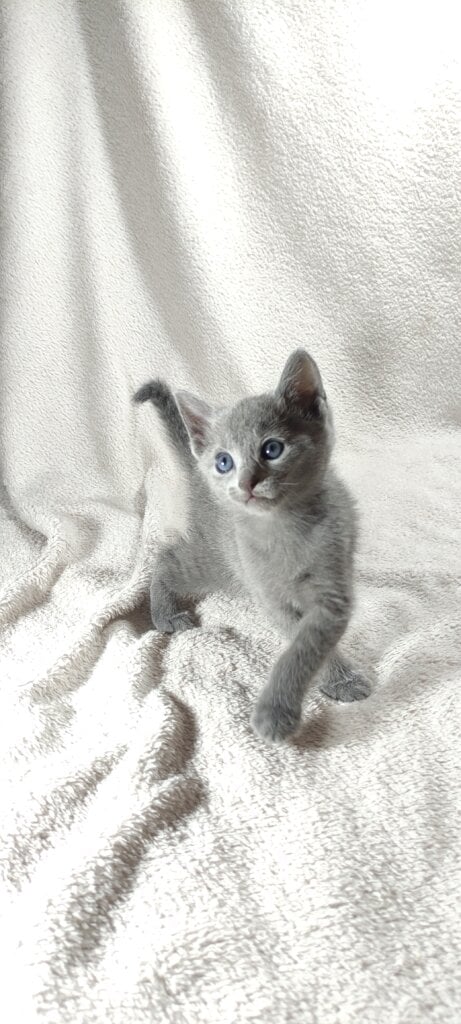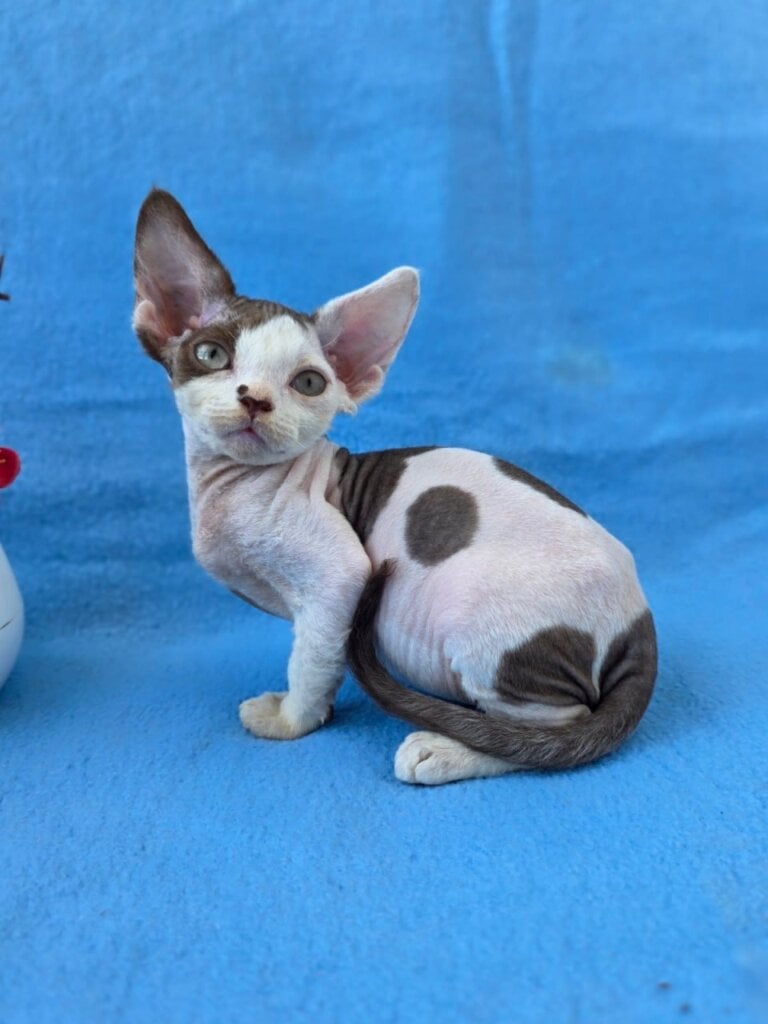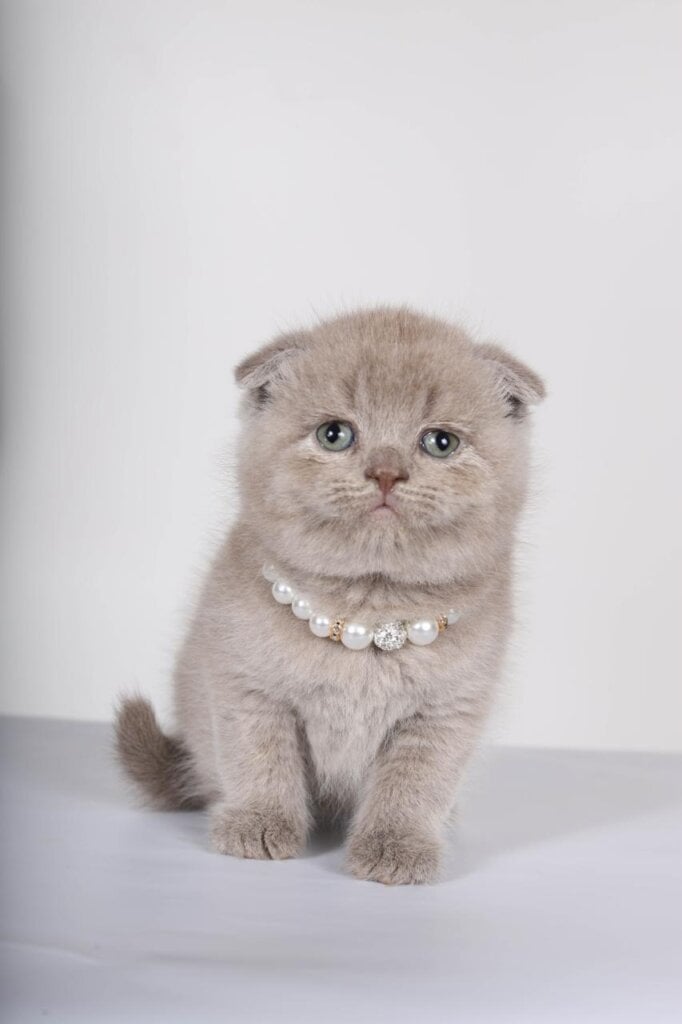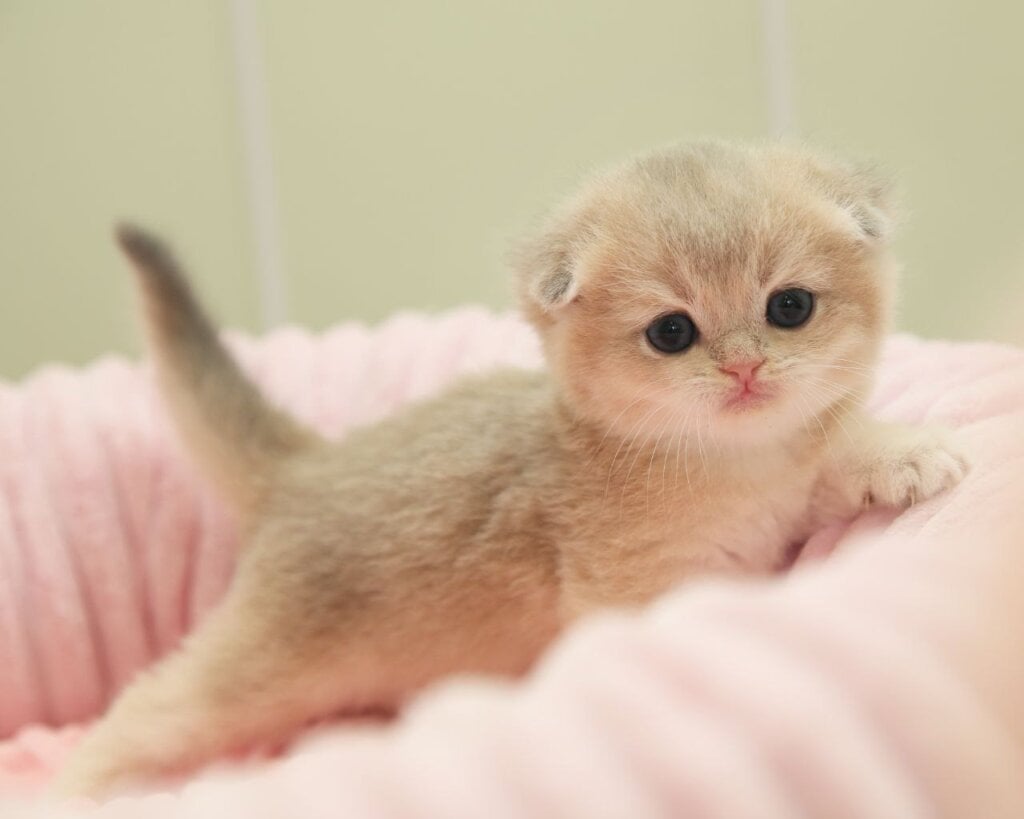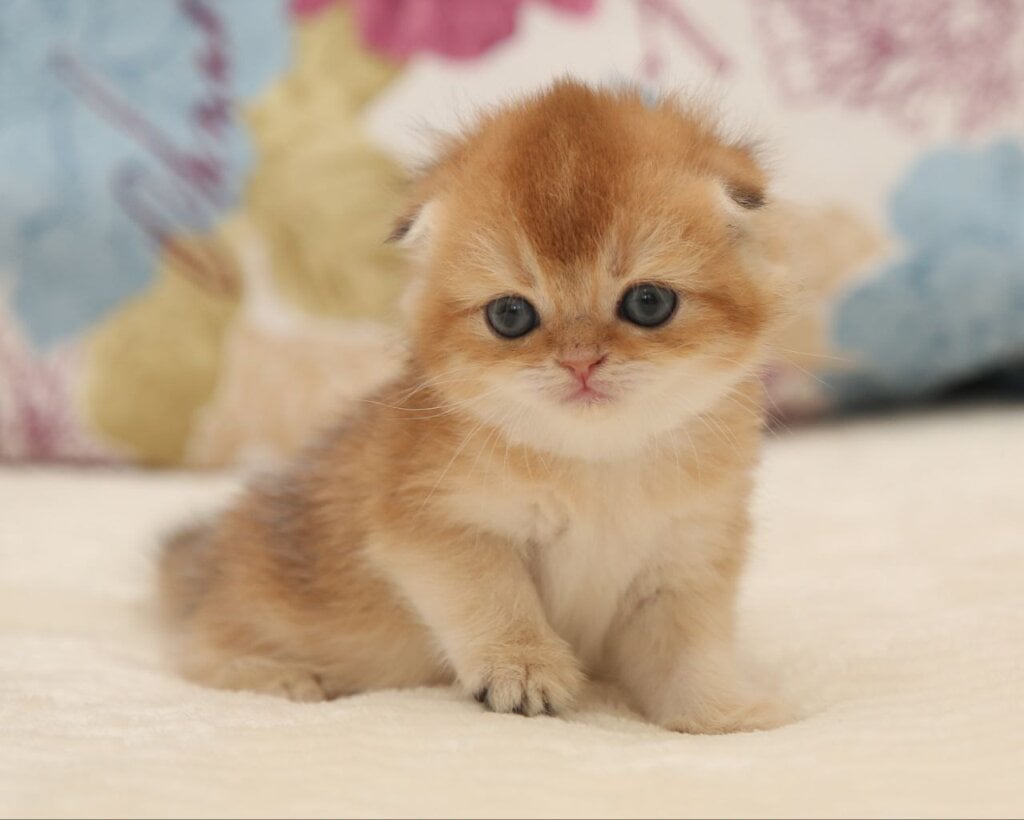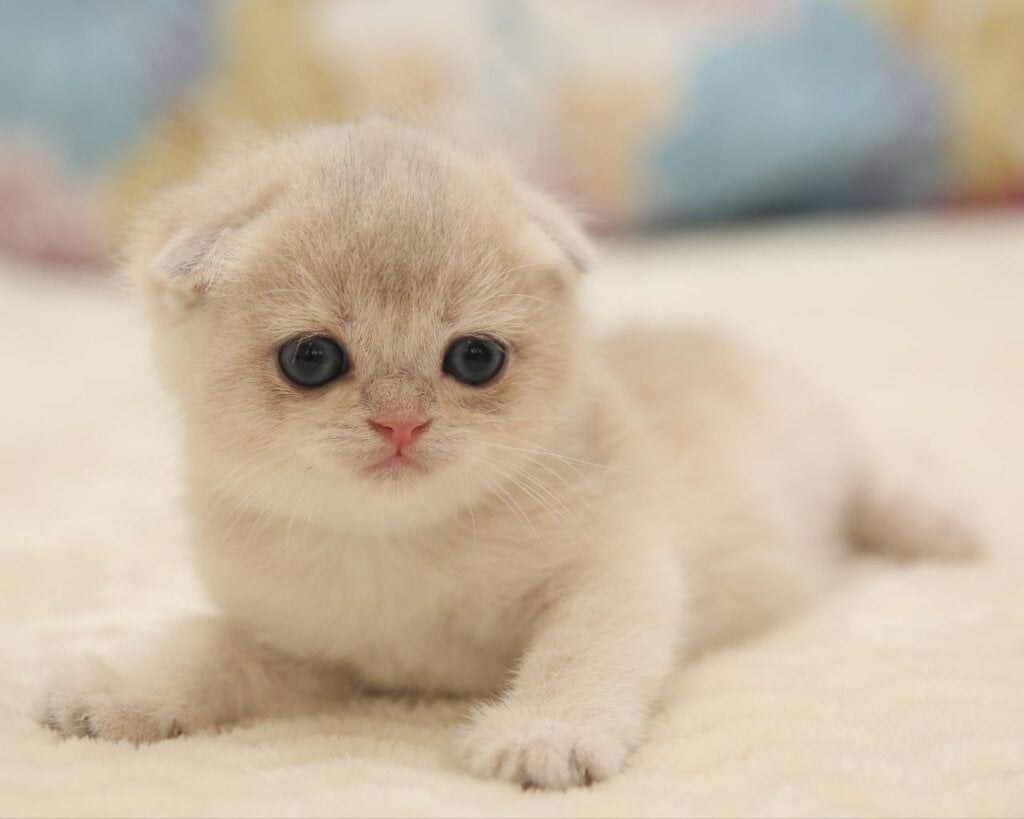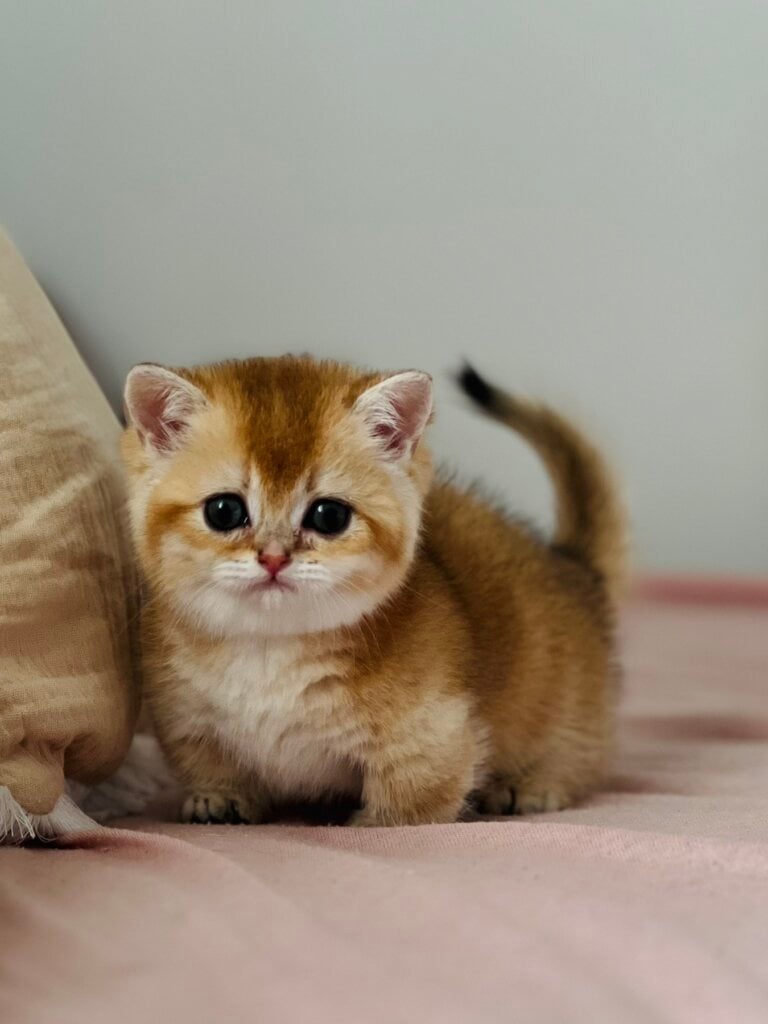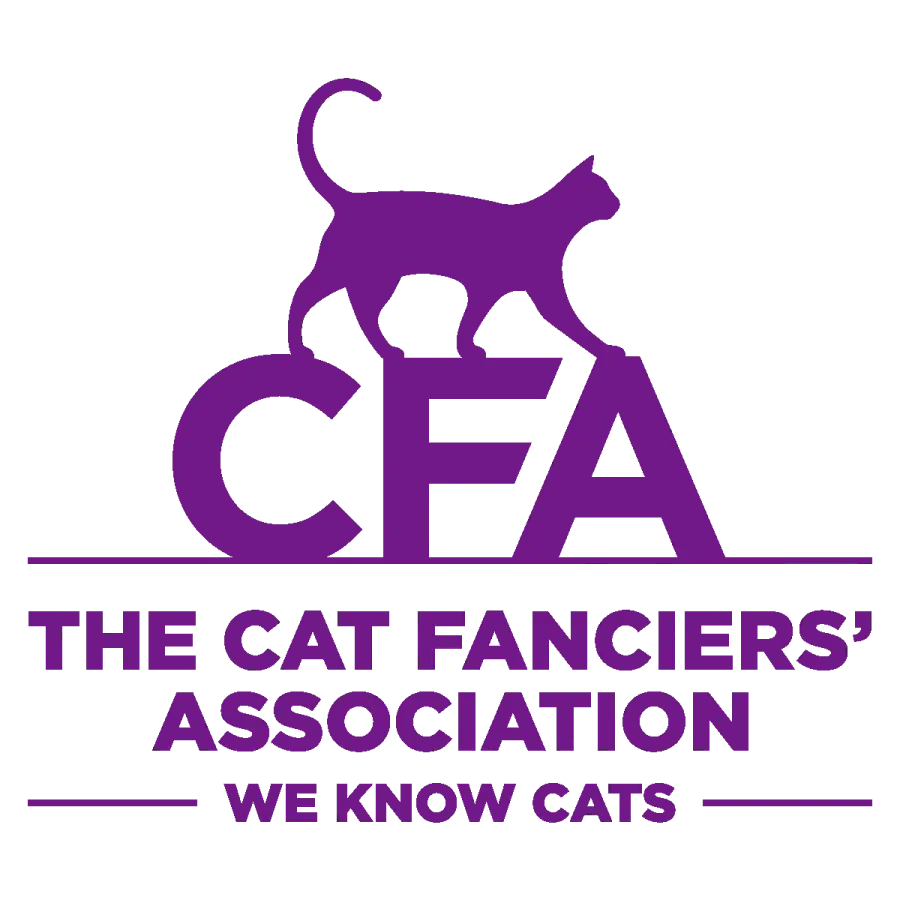What Are Maine Coon Kittens?
Maine Coon kittens are a specific, distinct breed known for their remarkable size and playful personality. These kittens are true crowd pleasers – friendly, outgoing and ready to play! Whether they’re tumbling around the house or playfully teasing your other pets, their mischievous antics will keep everyone entertained.
With their loving personalities, Maine Coons are ideal pets. They are incredibly loyal and loving, and they quickly forge deep connections with their human families. Maine Coons are loving companions, and like all pets, they deserve the best care and attention.
Maine Coon Ancestry Overview
The tales of Maine Coons are steeped in myth, folklore, and historical beauty, making their story all the more fascinating. It is widely regarded that these cats bred themselves through natural selection, thriving in the rugged climates of Maine.
This process of natural selection was a key factor in their rugged good looks and strong, hardy disposition. Many of these breeds intermingled with the Maine Coon line, reinforcing its unusual traits. Many of these cats have a mixed racial background, with as many as 75% likely to be Maine Coon. Only those that pass certain criteria are considered purebred.
Key Features of Maine Coons
While Maine Coons have many unique qualities, here are a few that make them stand out. Their impressive size makes them impossible to ignore. They are large cats, with adults weighing 10 to 25 pounds, and grow slowly, taking three to four years to reach their full size.
The tufted ears and bushy tails are characteristic features of these animals. Their tails are equally impressive, long, tapering, and heavily furred, adding to their spectacular look. Like all cats, their luxurious coats come in a dazzling palette of colors and patterns.
What really makes them distinctive is the special “M” shape marking on their foreheads, the trademark of this breed! Their temperament matches their impressive physical attributes. Known as gentle giants, Maine Coons are a favorite among pet owners because of their calm nature and affectionate personality.
They are known for their intelligence and curiosity, often exhibiting “supervisor” behavior, where they enjoy following their owners around, observing everything with keen interest. Their distinct vocalization – sometimes referred to as a “coon” sound – only enhances their irresistible appeal. This charming form of communication only adds to their charm.
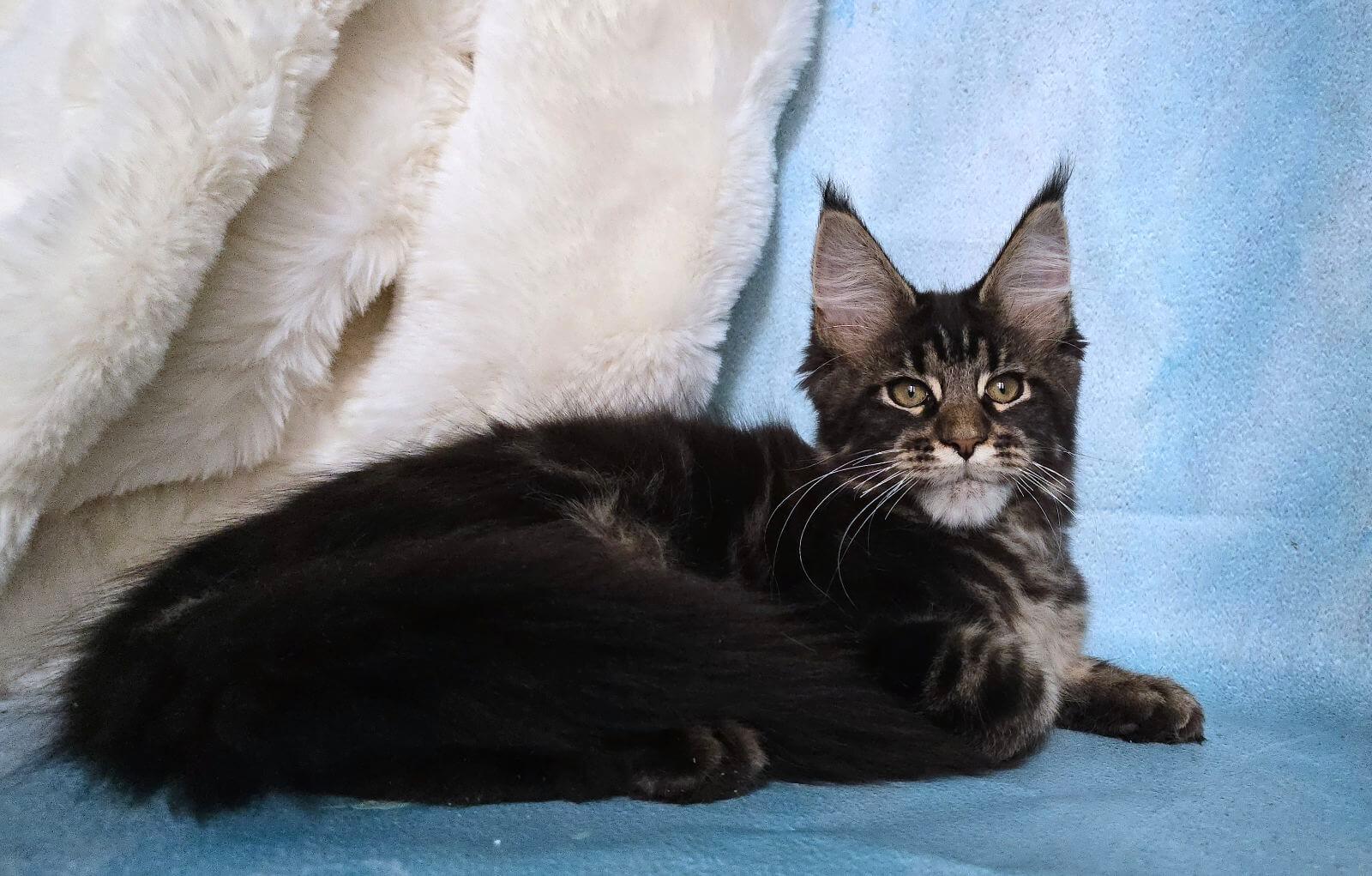
Identifying Maine Coon Kittens
It’s an exciting day when you finally spot a Maine Coon kitten! Watch for their unique physical characteristics and personalities to spot these extraordinary kittens. Here are some key characteristics to look for:
- Thick, dense fur with a shaggy appearance
- Rectangular body shape with a stocky frame
- Large, tufted ears set wide on the head
- Broad face with high cheekbones
- Long, bushy tail that resembles a raccoon’s tail
- Large, rounded paws, sometimes with extra toes
- Distinctive mane or shaggy frontal ruff
1. Examine the Fur Texture
One of the most distinguishing characteristics to note is the fur texture of Maine Coon kittens. Their fur is incredibly dense, giving their coats a rich, luxurious feel. This thick mane of shaggy fur contributes to their regal appearance and is often paired with a silky undercoat.
This undercoat’s existence is a surefire giveaway that adds to their overall plushness. Most owners claim that their coat is similar to a lion’s mane, particularly around the neck. This unique feature only adds to their wild and regal appearance.
2. Assess the Body Shape
Maine Coons are easily recognized by their distinct rectangular body shape and stocky frame. This build is notable for its long, proportionate legs and tail. All of these qualities contribute to its overall well-proportioned appearance.
Their big paws are a telltale sign, foreshadowing their future as big cats. Some Maine Coons tip the scales at 15 pounds or heavier. This is what makes them much bigger than the average house cat.
3. Observe the Ear Shape
The ears on a full grown Maine Coon are large and tufted, set high and wide apart on the head. This is further accentuated by ear tufts and long guard hairs. In combination, they produce a fierce-cat charm that makes you believe you are taking a look at a Lynx.
Looking at the ear shape and size compared to other breeds can further confirm their Maine Coon heritage. Almost 40% of these kittens are born with an extra tuft of hair between their toes, which helps them walk on snow.
4. Note the Facial Features
The Maine Coon’s face is wide with high cheekbones and an elongated muzzle, setting them apart from other domestic felines. Their eyes, ears, and other facial features are often accented or feature different markings or patterns.
Their triangular face and wedge-shaped muzzle add to their wild and regal appearance, making them all the more distinctive.
5. Compare Size with Other Breeds
They are one of the largest domesticated breeds, with males averaging over 15 pounds and females about 10. Comparing a kitten to popular breeds can demonstrate these size disparities.
A side by side visual chart is one of the best ways to illustrate these comparisons, highlighting the greatness of the Maine Coon.
6. Measure the Tail Length
The tail of a Maine Coon is an additional prominent trait. It is very long and very bushy, with a wide base that tapers off, similar to a raccoon tail. If the tail of a kitten is anywhere near three-quarters of their body length, you can be sure that it’s a true Maine Coon.
7. Evaluate the Coat Texture
The coat of a Maine Coon should be soft and dense. Patches of color can vary, as well as their length, but their coarse, shaggy texture is a signature characteristic.
They have a tendency to shed as well, something common among breeds with dense coats.
8. Inspect the Paws
Looking at the paws, we see big, rounded toes. Other Maine Coons have polydactylism, so they may have additional toes, a frequent characteristic of the breed.
The paw size and shape in relation to their body size will help you determine their lineage.
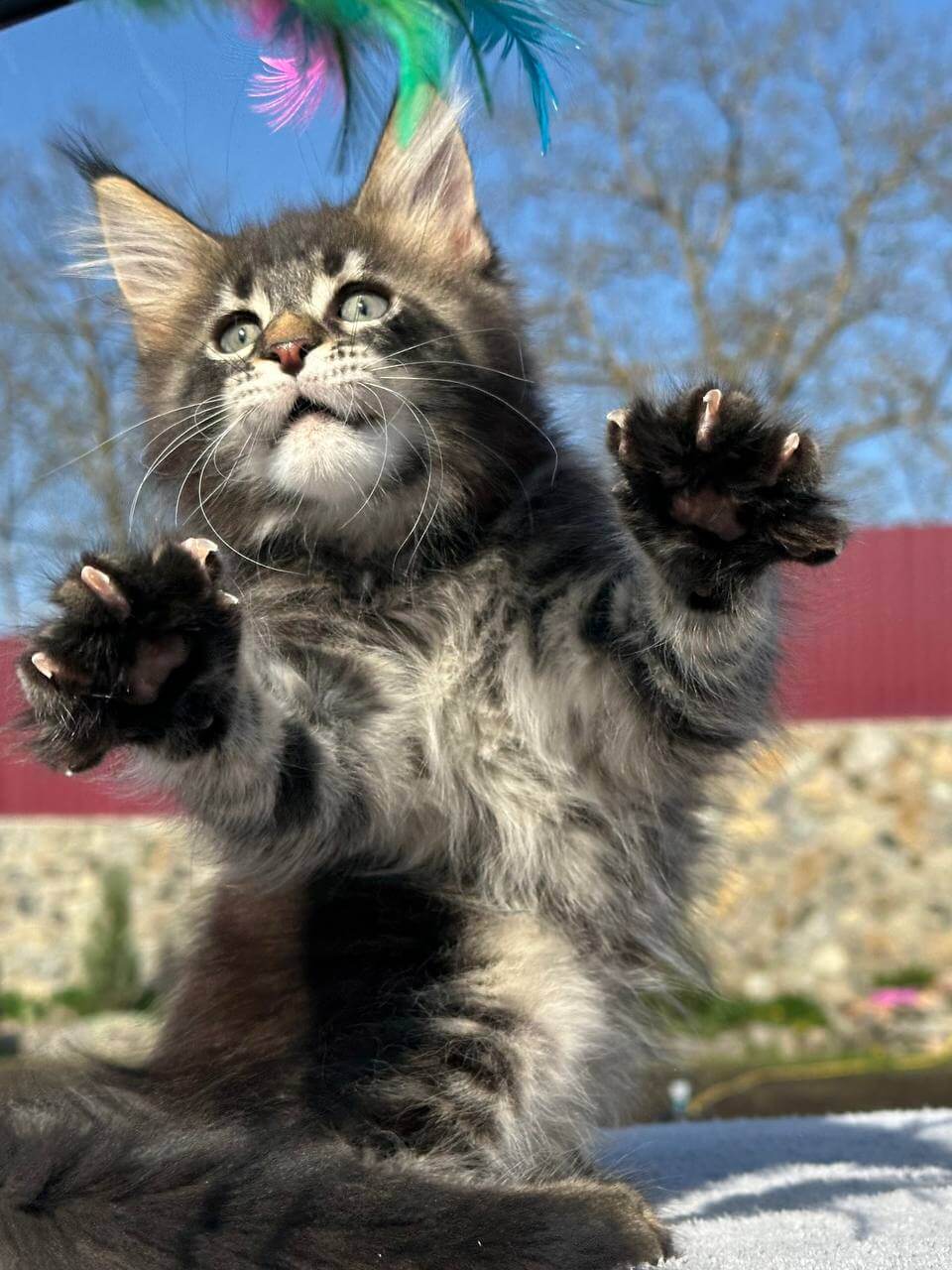
Health Considerations for Maine Coons
As far as any Maine Coon goes, knowing what to look for is essential for every loving pet parent. Routine veterinary visits are very important. These regular visits are an excellent way to ensure your kitten is healthy, and detect any potential problems early on.
A healthy Maine Coon faces unique health challenges. As an example, hypertrophic cardiomyopathy (HCM) is a congenital heart disease seen frequently in Maine Coons. The good news is that regular cardiac ultrasounds can help detect HCM early. This is why early detection is crucial as it allows for much better management and quality of life.
Common Health Issues Overview
Maine Coons are susceptible to many health issues, most of which are hereditary. They are prone to develop diseases like spinal muscular atrophy (SMA), hip dysplasia, stomatitis, and polycystic kidney disease (PKD).
Signs to look out for include having trouble getting around, labored breathing, or other peculiar behavior. Being aware of these symptoms and pursuing early medical attention can help significantly. Maine Coons, though hardy, are not exempt from these concerns.
Even with the best breeders, the most responsible breeders can still produce kittens with underlying conditions. Therefore, routine health examinations as well as knowing what symptoms to watch for can help keep your Maine Coon healthy and happy.
Genetic Testing Importance
Genetic testing is an important step in detecting potential health risks in Maine Coons. It aids in identifying genetic predispositions that would not be obvious otherwise.
For breeders, genetic testing is worth its weight in gold. It guides responsible breeding practices so they’re less likely to pass on genetic defects. For pet parents, making the choice to pursue genetic testing offers insight into your cat’s health.
It helps you understand what to look for and make informed decisions about care and management, setting your Maine Coon up for a longer, healthier life.
Maintaining a Healthy Lifestyle
Feeding your Maine Coon the right balance of nutrients and keeping him active are two key health considerations to prevent possible health issues. Fatty acids, for instance, are great at encouraging healthy development and a lustrous coat.
Too much can cause them to become obese, which is often seen in Maine Coons. Obesity can lead to insulin resistance, which can result in diabetes. To maintain their health, it’s crucial to continue their diet as animal protein-rich – contrary to carbohydrates, which cats are not able to metabolize properly.
Keeping track of food consumption and making sure your cat gets plenty of exercise will help avoid obesity and the health issues that come along with it. As with all pets, Maine Coons do best when provided a diet designed with their unique needs in mind.
Not exceeding 20% fatty acids and having a protein source first is preferable. Regular playtime and taking Maine Coons on walks or runs are ways to help keep them spry and the extra pounds off.
While these health considerations are something to be aware of, many Maine Coons live long, happy lives with the right care and consideration. Responsible Maine Coon parents should strive to keep their cats healthy and happy.
They can help owners select a balanced diet, encourage regular veterinary examinations, and recommend genetic testing.
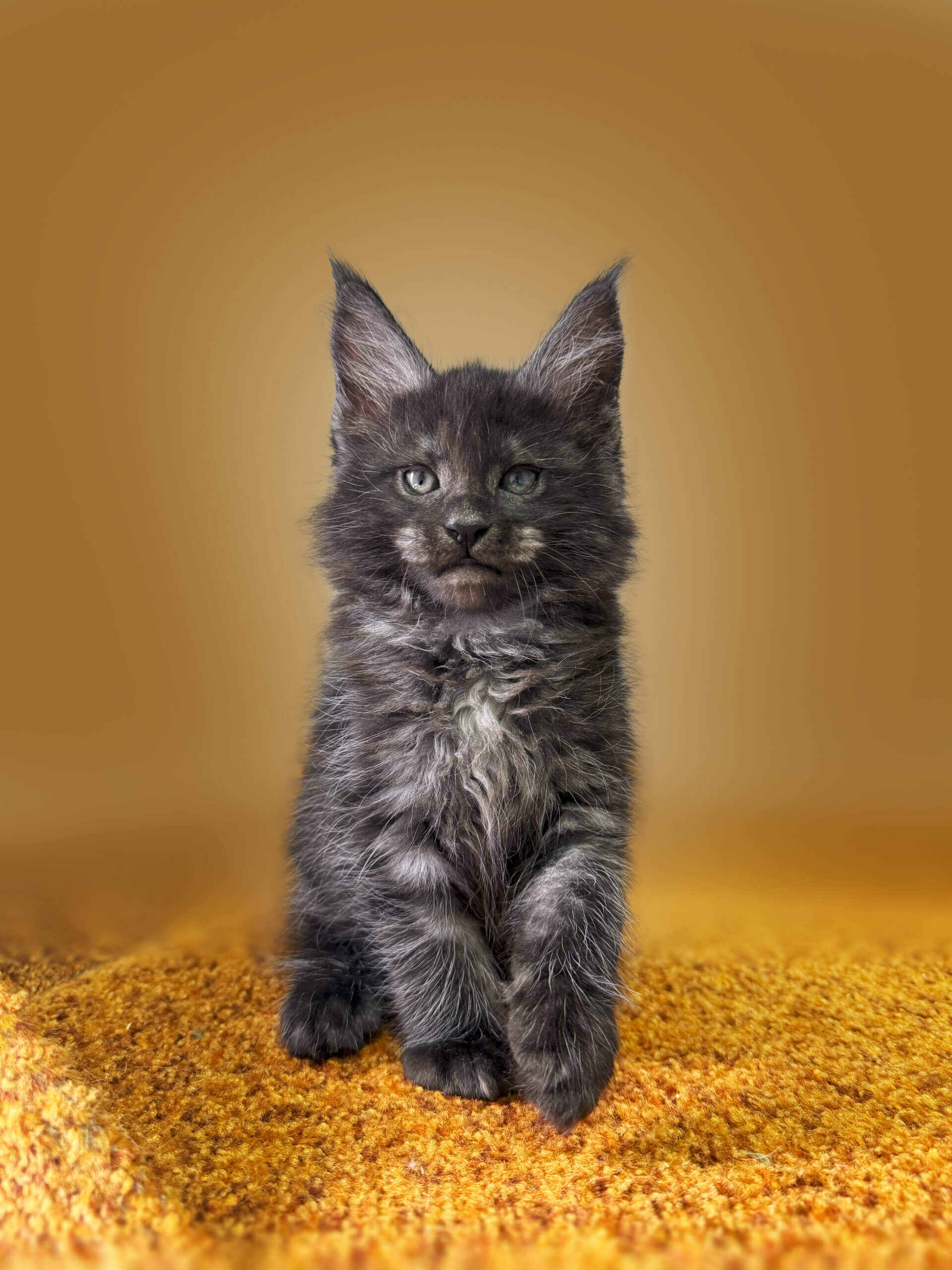
Responsible Breeding and Care
The best way to make sure you get a purebred Maine Coon kitten is to know what makes a breeder responsible. Responsible breeders are defined by their dedication to ethical breeding practices and transparency. They document and publish everything that they are doing in their breeding program.
Additionally, they are excited to share their expertise regarding the health and lineage of their cats. Ethical breeders guarantee the cat’s life for at least one year against genetic defects that could result in loss of life. They quarantine new cats for 14-21 days to prevent the spread of disease.
This process is part of how we are able to maintain a low inbreeding coefficient, generally below 12.5%. These responsible breeders are diligent in making sure they test their breeding cats for genetic disease. They provide a five-year health guarantee to guard against genetic risk factors.
Such measures prevent the kittens from being of inferior quality or unhealthy.
Choosing Reputable Breeders
Here are some qualities to look for:
- Transparency: Willingness to share detailed health records and lineage information.
- Responsible Breeding and Care: Promises to never overbreed and provide pets with a healthy, comfortable lifestyle.
- Health Assurance: Offering health guarantees and regular veterinary checks.
- Experience: Years of breeding experience and familiarity with bloodlines.
- Strict enforcement of quarantine measures for new cats.
Visiting breeders can provide insights into their practices. When visiting, observe the living conditions and ask questions about the kitten’s lineage and health.
Although it can be challenging to assess the temperament of kittens under three months, a reputable breeder will prioritize both the health and temperament of their cats. It’s essential to ask about the kitten’s parents and ensure they have been tested for common genetic issues.
This diligence helps ensure that you will bring home a healthy and well-bred Maine Coon.
Ensuring Kitten Health and Growth
Keeping an eye on your Maine Coon kittens’ health and growth is important. Routine veterinary check-ups are essential to monitor their growth and nip any potential health problems in the bud.
Proper nutrition is an essential piece to their care and development. They require a diet high in protein and other nutrients to fuel their massive size and energetic requirements. Healthy Maine Coon kittens are an indication of good breeding practices.
Look for bright eyes, a glossy coat, and a playful demeanor as signs that everything is right with them. Monitor their weight gain and physical milestones, as these are obvious indicators of good growth.
Essential Care for Kittens
Caring for a Maine Coon kitten involves several essential practices:
- Regular brushing to manage their thick coat and reduce shedding.
- Providing interaction with people and other pets to encourage friendly behavior.
- Engaging them in play to promote physical activity and mental stimulation.
- Providing a safe, kitten-proof home to avoid injury and encourage curiosity.
Providing a safe stimulating environment is essential for their healthy growth and development. Maine Coons do best in environments where they have room to roam, play, and lounge as they please.
With the right care and attention, these kittens can grow into well-adjusted, healthy cats and wonderful companions.
